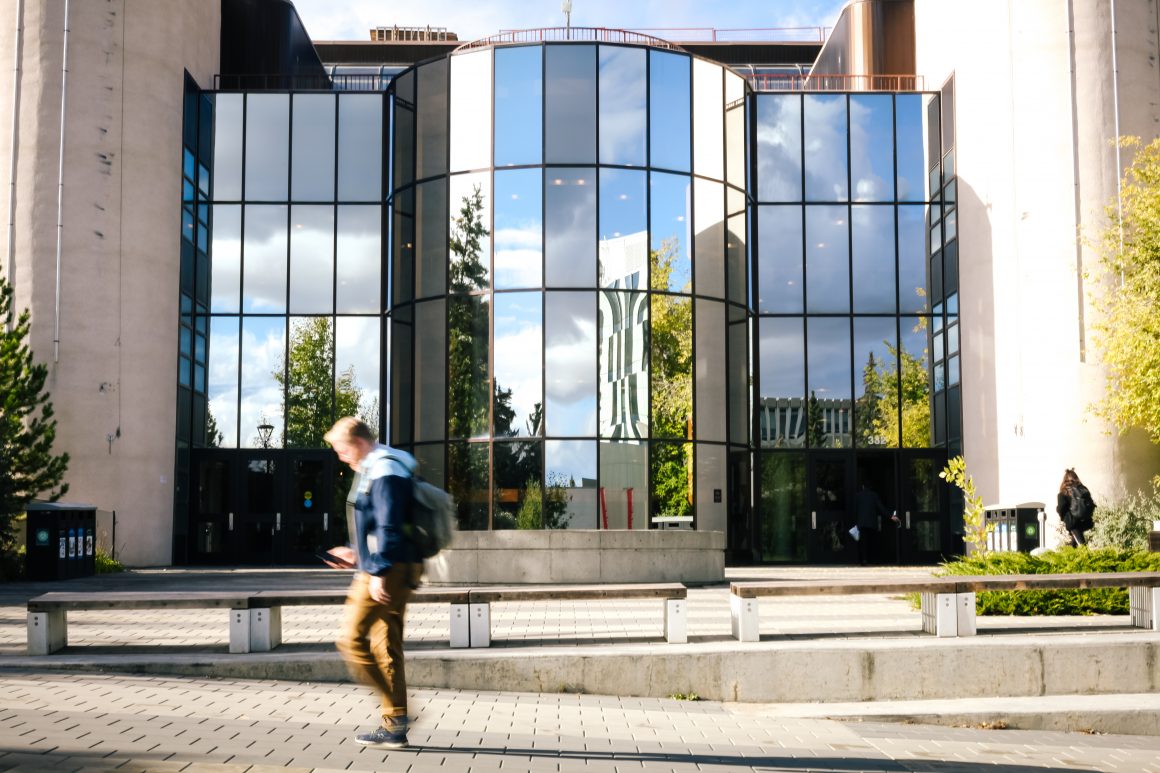
Student leaders and faculty members at U of C respond to university’s return to campus strategy
By Cristina Paolozzi and Luis Armando Sanchez Diaz, August 11 2021—
The University of Calgary has updated their safety measures and COVID-19 supports for the coming school year. This comes months after the announcement of a return to in-person classes for the Fall 2021 semester.
As a part of their updated health and safety strategy, the university is opening access to vaccination clinics, with a plan to offer additional clinics in partnership with Alberta Health Services (AHS) in tandem with the drop-in clinic in the MacEwan Student Centre.
The university will also introduce rapid-testing for residence, varsity athletics and field schools as a result of the proximity and duration of contact these activities usually have. The cost of testing will be covered by the university and ongoing testing will not be required for those who wish to volunteer their proof of full vaccination.
While the provincial government will no longer require individuals who test positive for COVID-19 to isolate, as well as ending central contact tracing, the university is providing the choice to use their own contact tracing service. You can submit a list of your contacts to ohs@ucalgary.ca to access this service. The university is also examining the air ventilation systems already in place on campus.
Mask use is recommended, and while the university is planning to provide more access to vaccines, proof of vaccination is not mandatory.
In an email sent to students, Ed McCauley, president and vice-chancellor of the U of C, mentioned that the new protocols aim to “increase the safety of our community.” The new safety actions were laid out after the university reviewed their previous guidelines due to “[the] recent regulatory changes and increases in Delta variant cases.”
The announcement came days after the U of C Provost and Vice-President Academic Teri Balser, shared via email the results of a survey sent to students, staff and other community members, in which they were asked about their vaccination status as well the concerns that they might have as in-person classes resume in the fall. The responses were anonymously received by the Office of the Provost.
Overall, 11,426 people submitted a response, 93.6 per cent of which said that they either have been vaccinated or plan to before classes begin, with 87.9 per cent already fully vaccinated. Further, 84.8 per cent of students and 92.8 per cent of faculty and staff are fully vaccinated. The numbers are expected to rise in the coming weeks as 7.5 per cent of students and three per cent of faculty and staff plan to get their COVID-19 shots before the term starts on Aug. 30.
According to the CTV News vaccination tracker, 75.6 per cent of eligible Albertans have received at least one dose.
Balser cautioned “not to over-interpret results,” but declared herself confident that the data showed a clear outlook of reality, citing the high vaccinated population in Calgary, particularly among people between 20 to 39 years old. She also encouraged students to get vaccinated, sharing the same sentiment as McCauley did in a previous email.
“The single most important thing you can do to protect yourself and those around you is getting vaccinated,” she said.
Associate law professor at the University of Calgary, Lorian Hardcastle, responded to the Gauntlet in an email stating her concerns for the upcoming school year in response to the university’s updated health and safety strategy.
“In general, my main concern is that the confluence of several factors make this a high-risk situation,” read the email. “Due to the province’s recent changes, students will be unmasked and there will be positive cases mixed among them. Looking at provincial vaccine data, many students are also unlikely to be vaccinated.”
Hardcastle continued, saying that without proof of vaccination, the university is ultimately putting the campus community at risk.
“The university recommending masking, vaccinations and isolating if positive do not have any teeth and students, staff or faculty who are at risk or who have family members who are at risk will not be able to do anything if people choose not to follow these recommendations.”
In a statement to the Gauntlet, Students’ Union (SU) President Nicole Schmidt mentioned that the SU “remains concerned,” and that the university should have been more proactive in their plans for a return to campus.
“The SU remains concerned about the fall return to in-person learning. Students will be returning to campus in one month and students have many unanswered questions for university administration. Students will be returning, as of now, without requirements for masks, distancing or vaccination. This is causing many students stress and anxiety. It is still unclear what the university is doing to mitigate concerns like these and for students who may not yet be comfortable returning to a 300 student lecture,” the statement read. “The pandemic has lasted 18 months so far and the university knew we would be returning to in-person classes at some point. The university should have been more proactive in its planning. Students deserve to know they will be safe on campus and what the university is doing to help ensure that safety,” the statement continued.
Hardcastle also mentioned that 21 members of the Faculty of Law have written a letter to university administration expressing their concerns.
“I want to be back on campus and want students to have an in-person learning environment, but I am concerned that this may be very challenging with the university’s current approach,” said Hardcastle.
To read the full results of the survey, click here. To learn more about the university’s COVID-19 strategy, check out their website.
